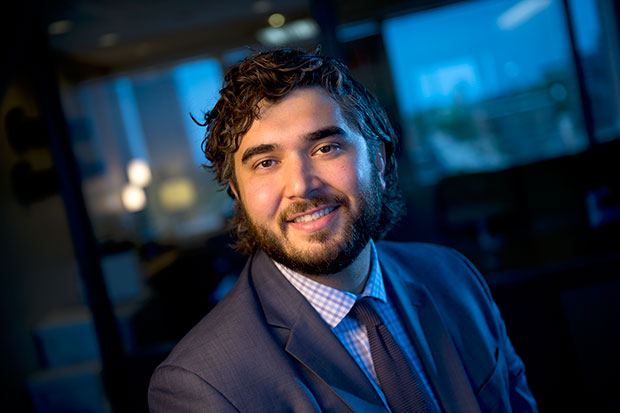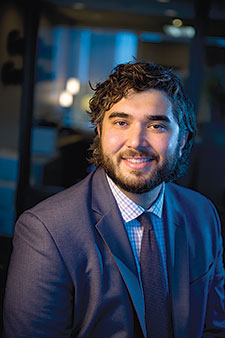Cleaning up the rules of evidence
By: Erika Strebel, [email protected]//August 11, 2016//

Council proposing codifying case law, matching federal rules
When the Milwaukee attorney Tom Shriner was studying for the Wisconsin bar exam, he discovered a discrepancy between the state’s statutory language governing when past criminal convictions can be introduced to impeach a witness and actual courtroom practice.
“I was surprised by the way (Federal) Rule 609 was applied in Wisconsin,” he said. “Although the (Wisconsin) rule was articulated the same way, the practice was different.”
Roughly 40 years later, Shriner has become part of a group of lawyers, judges and other practitioners on the state’s Judicial Council who are asking the Wisconsin Supreme Court to amend that particular rule of evidence, contained in Wis. Stat. 906.09, so it conforms with case law and actual practice in courts around the state.
Both Wisconsin and federal courts have rules governing when parties in civil and criminal cases may call witnesses who have previous convictions. But the rules are applied in differing ways.
One of the biggest divergences concerns whether lawyers can be expected before trial to discuss the possibility of introducing evidence of a witness’ previous criminal conviction. Federal courts assume they can, but not Wisconsin state courts.
Also, federal rules place limits on the types of previous convictions that can be introduced to impeach witnesses and criminal defendants who choose to testify. Wisconsin, in contrast, allows any sort of criminal conviction to be brought up.
Witnesses can simply be asked if they have ever been convicted of a crime. If they say “yes,” they can then be asked “how many times?”
“That’s it,” said Shriner. “You don’t get to go into it any further.”
The Judicial Council is suggesting that the state’s rule be amended both to spell out what occurs in actual practice in Wisconsin and codify what the state Supreme Court has said state judges should take into account when weighing whether to let opposing parties ask during trial about a witness’ criminal history. The high court has decided that judges should, for instance, consider the gravity of witnesses’ previous crimes and the frequency of their convictions.
“All we’ve done with this rule is leave the current practice in place and have the rule reference the current practice instead of speaking around it,” Shriner said.

Jason Luczak, a Milwaukee trial attorney, said he would have liked to see the council suggest that the court adopt the federal rule, which he believes is fairer to people accused of crimes. The federal rule, for instance, puts limits on introducing criminal convictions that are more than 10 years old.
“But I understand why they don’t want to upset current case law and the way things operate,” Luczak said. “I think it’s a good middle ground approach.”
Shriner’s committee chose that middle-ground after hearing misgivings expressed by both criminal-defense attorneys and prosecutors. Besides airing concerns similar to Luczak’s, defense lawyers have worried that the current rule might discourage criminal defendants from taking the stand.
Fears over impeachment can make defendants think twice about testifying, but taking the stand despite the rule could also come with advantages.
“In my experience, I think that you’re much more likely to win at trial if your client testifies because the jury wants to hear the full story,” Luczak said.
Prosecutors, for their part, were more concerned that adopting the federal rule would disturb well-settled state case law and force state courts to completely change their practices. A move toward federal courts’ way of conducting business might, for instance, require pretrial discussions to be held every time parties tried to undermine the credibility of a witness by introducing a previous conviction at trial.
Shriner said the different standard makes sense in federal courts, which tend to hear fewer criminal cases than state courts, Shriner said.
“You would really slow things down and make it really difficult and expensive,” said Shriner. “The prosecutors didn’t want to go there.”
The proposed change to the state’s rule related to witness impeachment is only one of four the state’s Judicial Council is asking the Wisconsin Supreme Court to make.
Council members are also calling on the justice to create a rule stating that bias may be used to impeach witness testimony.
Elsewhere, the council is asking the justices to amend two other rules of evidence. One request calls on the justices to expand the state rule involving the admissibility of writings and recorded statements to include unwritten oral statements. The state’s current rule tracks the federal version, and the proposed amendment would put the statute more in line with the common-law rule of completeness, Shriner said.
The other amendment would revise the state’s rule governing the impeachment of witnesses by introducing evidence of specific acts, Wis. Stat. 906.08, so it matches up with its federal counterpart, FRE 608, which was amended in 2003. The council is proposing deleting the rule’s use of the word “credibility” and replacing it with “character for truthfulness.” The U.S. Supreme Court, said Shriner, has decided that the latter wording is better.
Like Shriner, Luczak argued that the word “credibility” can be read too broadly.
“It could be really anything that attacks a witness’s reason for testifying,” Luczak said. ”What I think they meant … was character for truthfulness. It’s just a better term to use because it recognizes what that part of the rule is supposed to go at.”
The changes stem from a list of suggestions provided to the council in 2009 by Dan Blinka, a law professor at Marquette University. The suggestions were made after advice was gathered from nearly 100 trial court judges throughout the state.
The justices will be considering the proposals next term. Shriner said he doesn’t expect to see much, if any, opposition. The changes should be generally acceptable, he said, because they do little more than codify case law. The council’s proposal, he said, is meant to make the rules more accessible to practitioners such as new lawyers and new judges.
Luczak says it’s important that the rules be clarified and says he likes the council’s proposals to create a bias rule and change the state’s rules to match up with the federal rule involving impeachment of witnesses through evidence of specific acts.
“If you have the rule on your side, it makes it easier for courts to determine if evidence is admissible as opposed to arguing over case law, which can obviously be more muddled,” he said. Follow @erikastrebel
Legal News
- Chicago man sentenced to prison after being caught with ‘Trump Gun’
- FTC bans non-competes
- Gov. Evers seeks applicants for Dane County Circuit Court
- Milwaukee man charged in dismemberment death pleads not guilty
- Democratic-led states lead ban on the book ban
- UW Madison Professor: America’s child care crisis is holding back moms without college degrees
- History made in Trump New York trial opening statements
- Prosecutor won’t bring charges against Wisconsin lawmaker over fundraising scheme
- Republican Wisconsin Senate candidate says he doesn’t oppose elderly people voting
- Vice President Harris to reveal final rules mandating minimum standards for nursing home staffing
- Election workers fear threats to their safety as November nears
- Former law enforcement praise state’s response brief in Steven Avery case
WLJ People
- Power 30 Personal Injury Attorneys – Russell Nicolet
- Power 30 Personal Injury Attorneys – Benjamin Nicolet
- Power 30 Personal Injury Attorneys – Dustin T. Woehl
- Power 30 Personal Injury Attorneys – Katherine Metzger
- Power 30 Personal Injury Attorneys – Joseph Ryan
- Power 30 Personal Injury Attorneys – James M. Ryan
- Power 30 Personal Injury Attorneys – Dana Wachs
- Power 30 Personal Injury Attorneys – Mark L. Thomsen
- Power 30 Personal Injury Attorneys – Matthew Lein
- Power 30 Personal Injury Attorneys – Jeffrey A. Pitman
- Power 30 Personal Injury Attorneys – William Pemberton
- Power 30 Personal Injury Attorneys – Howard S. Sicula











